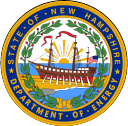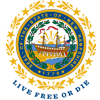Electric Assistance Program Low-Moderate Income (EAP LMI) Community Solar Program
Implementation of Senate Bill 270 (SB 270) 2022: An Act Establishing a Low-Moderate-Income (LMI) Community Solar Program
Group Registration and Administration Guidelines EAP LMI Community Solar Projects
Order Approving the Low-Moderate-Income Community Solar EAP Program
2023 EAP LMI Application and Designation Process
Applications for the 2023 EAP LMI Community Solar Project Designation were due on February 29, 2024
Seven Proposals were received.
The Department is in the process of reviewing applications for eligibility as well as evaluating on-bill credit estimates and expect to have clarification questions out to applicants shortly. As this is a new program, the Department expects a thorough and well-reviewed process which may extend the decision making.
2023 EAP LMI Designation Application Materials
Senate Bill 270 (2022)
Senate Bill 270 (SB 270) (2022) was enacted on July 8, 2022 and becomes effective on September 6, 2022. Among other things, this bill:
- Establishes an opportunity for certain additional LMI electric customers to participate in designated community solar projects eligible for the 2.5¢ per kWh adder for net export compensation.
- Requires electric distribution utilities to establish a list of residential customers who qualify for project participation, specifically consisting of residents who have enrolled in or are on the waitlist for the state Electric Assistance Program (EAP).
- Allows for up to 6 MW per year in total capacity of projects to be designated as eligible through a process to be developed by the Department.
- Will enroll qualifying customers on an opt-out basis into designated eligible projects, which must meet the definition of LMI Community Solar Projects and will be eligible to receive the LMI Adder.
- Once enrolled, LMI residential customers will receive on-bill credits in percentages specified by the project group host until such time as they no longer qualify for EAP or until they opt out from receiving credits.
Public Stakeholder Process
SB 270 became effective on September 6, 2022, and the Department of Energy initiated a public process to establish the details of this new program.
SB 270 Implementation Status Update - March 22, 2023
Stakeholder Session #3 December 22, 2022, 9am-11-am, virtual meeting
A third public stakeholder session regarding the implementation of SB270 (2022) was held virtually on Thursday December 22nd by the Department of Energy. See draft proposal and written comments below.
- SB-270 Session December 22, 2022-Agenda
- SB-270 Department of Energy Draft Proposal
- SB-270 Draft Proposal comments -Eversource
- SB-270 Draft Proposal comments - Vermont Law and Graduate School Energy Clinic has no additional comments, and refer to prior comments submitted October 17, 2022
Stakeholder Session #2 October 4, 2022, 9am-12pm
A second public stakeholder session regarding the implementation of SB270 (2022) was held virtually October 4, 2022 by the Department of Energy. See written public comments below.
- SB-270 Session October 4, 2022-Agenda
- SB-270 Department of Energy Straw Proposal
- SB-270 Straw Proposal comments - Clean Energy New Hampshire
- SB-270 Straw Proposal comments - Vermont Law and Graduate School Energy Clinic
- SB-270 Straw Proposal comments - Standard Solar
- SB-270 Straw Proposal comments - Joint Electric Utilities
Stakeholder Session #1 September 7, 2022, 9am-12pm
A public stakeholder session regarding the implementation of this bill was held in person September 7, 2022 in Hearing Room A from 9am-12pm at the offices of the New Hampshire Public Utilities Commission and Department of Energy, 21 Fruit Street, Concord NH. An agenda and discussion of items are available above.



